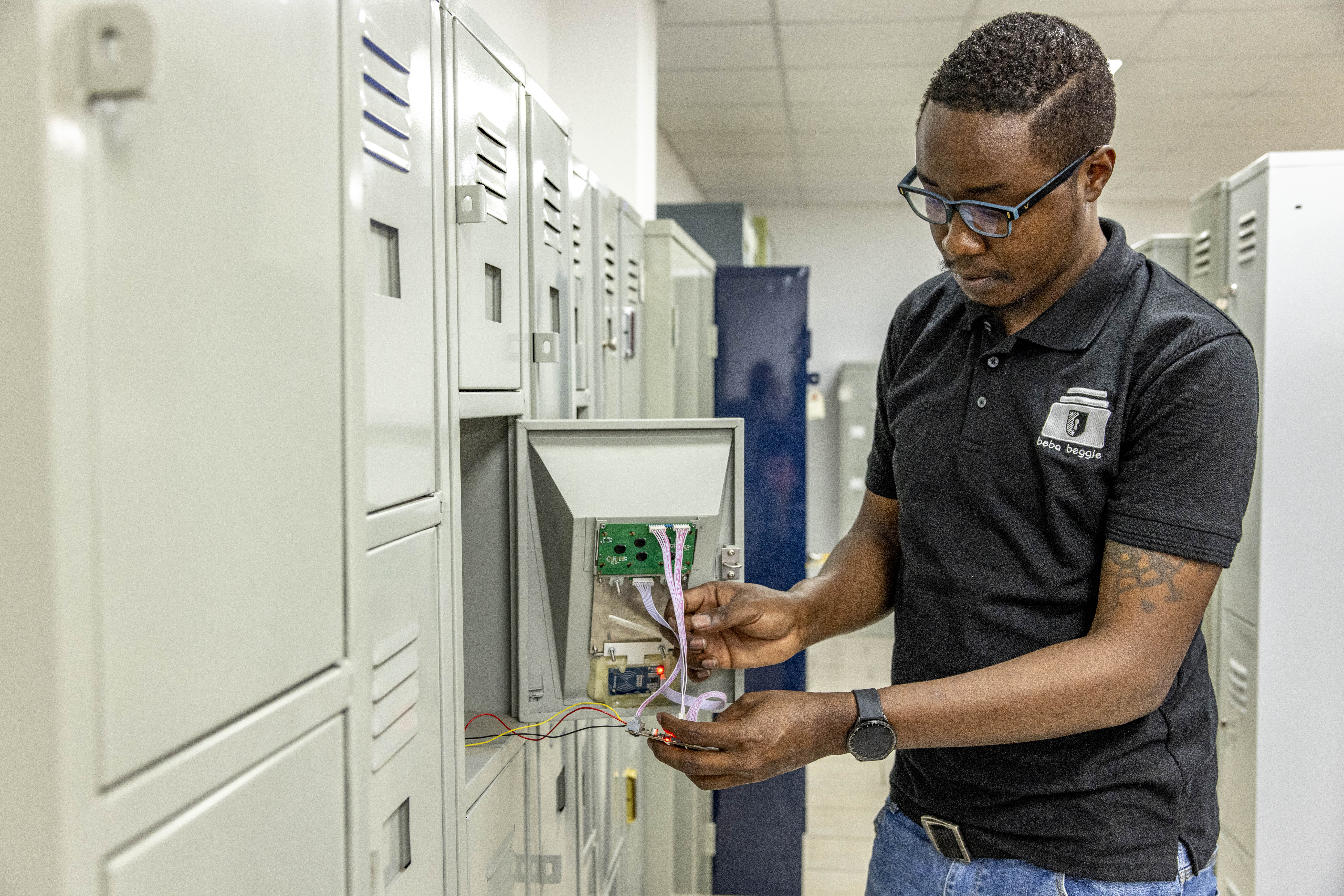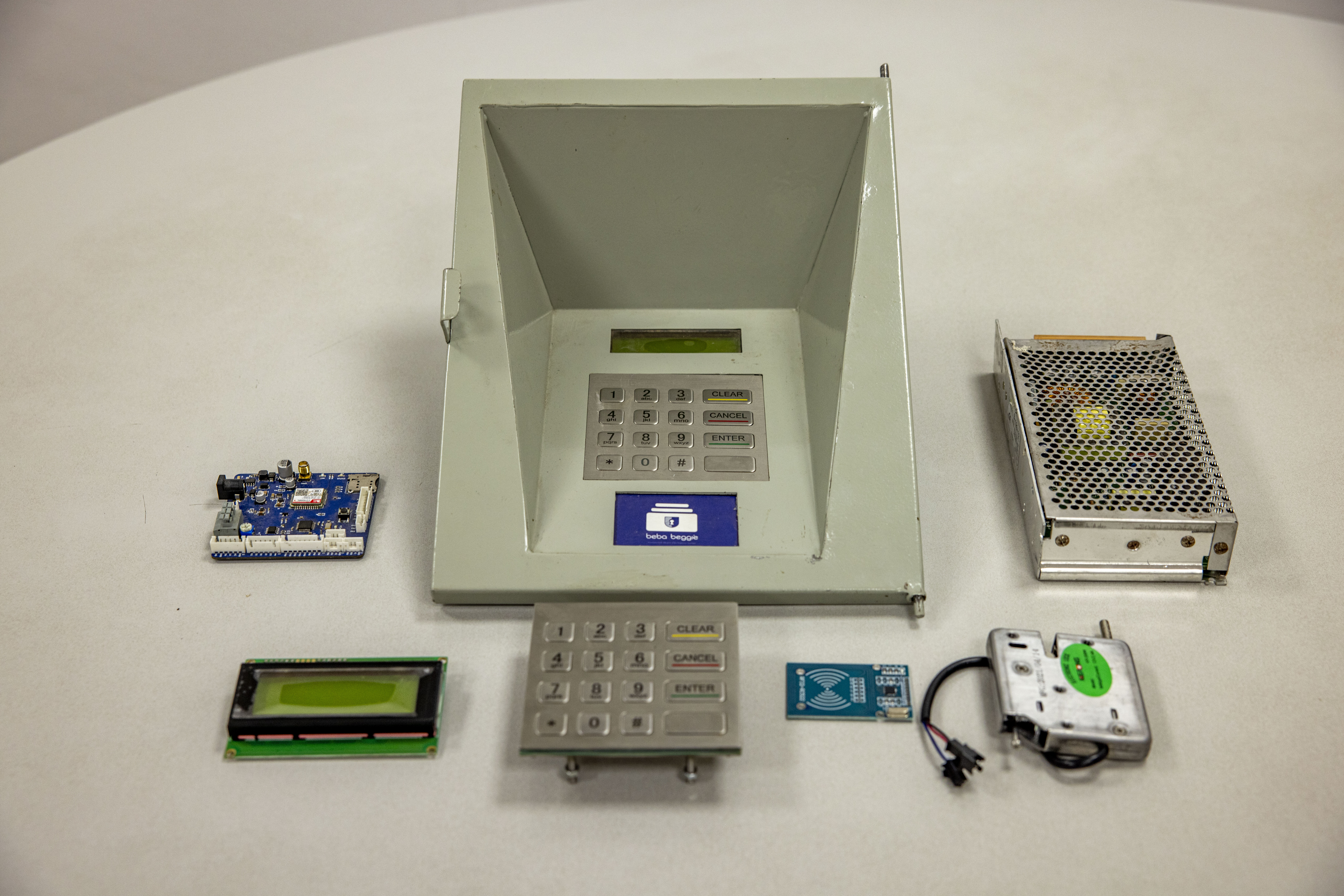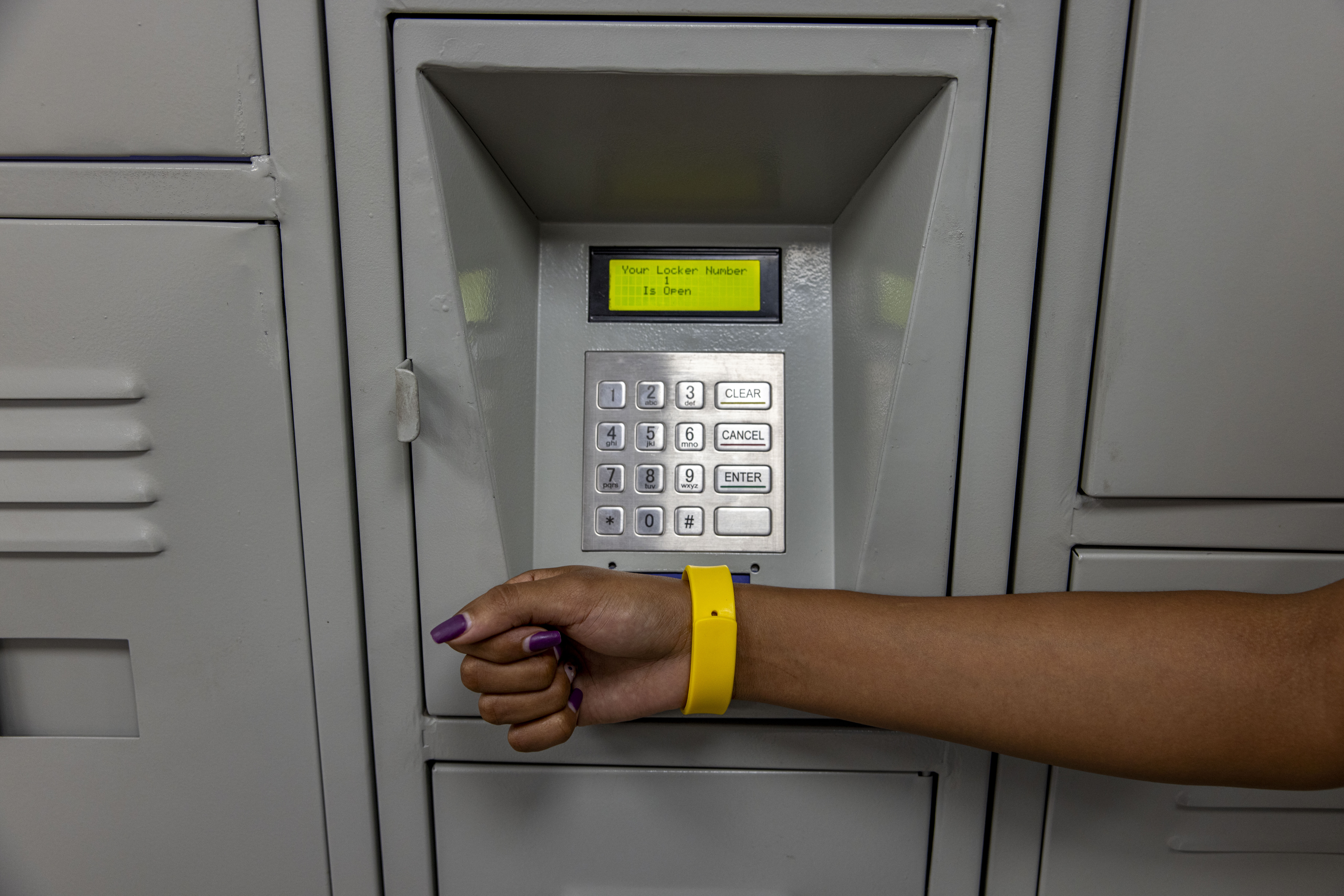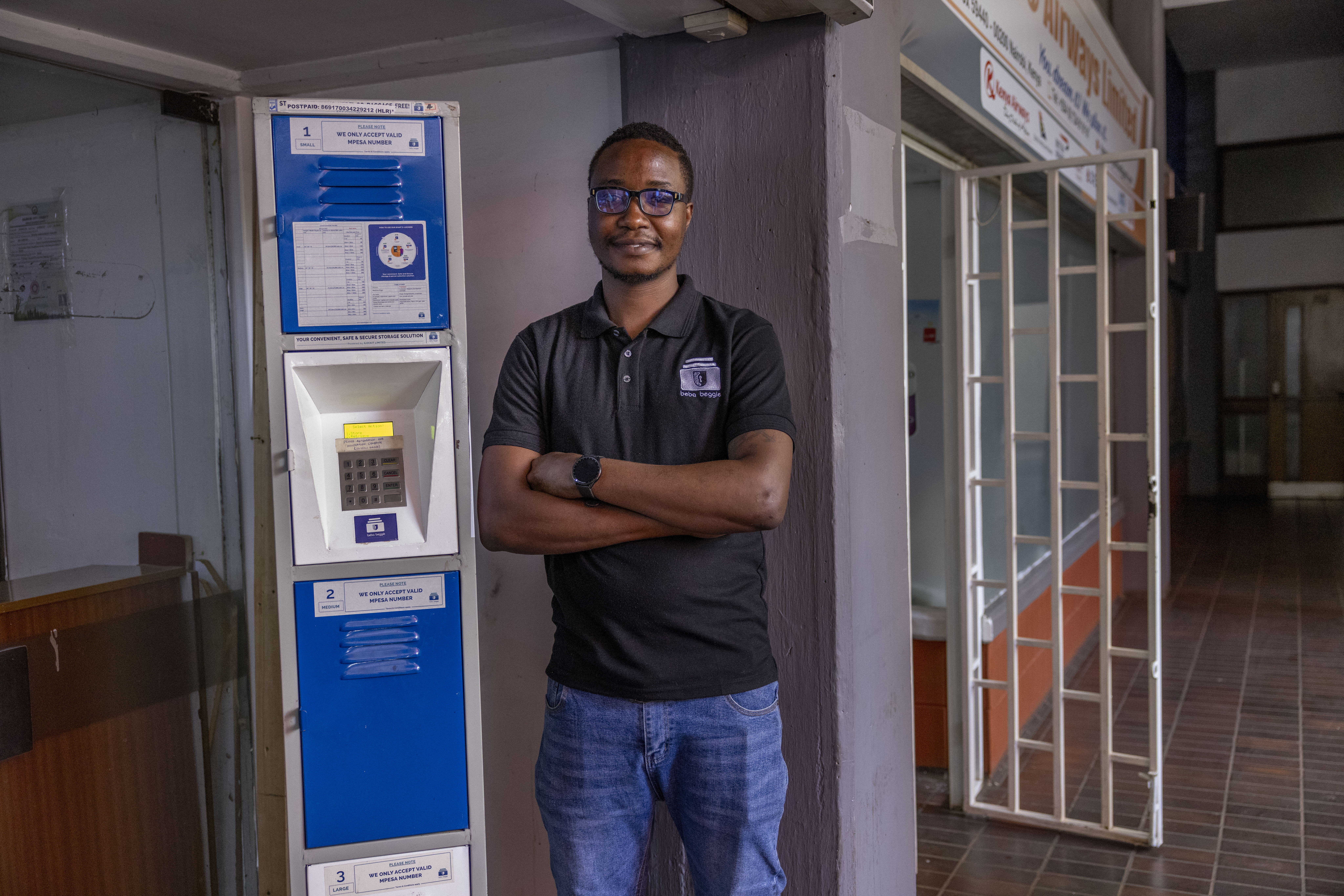Kenyan mechatronics engineer Charles Oduk created the system to address the problem of insecurity and loss of valuables encountered by the two million daily commuters within Nairobi’s central business district. He later developed the product to solve e-commerce merchants’ increased costs of handling deliveries. A version of the e-lockers is also available as a battery-charging station for e-mobility motorbikes. The locally designed and fabricated metal e-lockers also offer a secure and accessible drop-off and pick-up facility for courier and parcel deliveries.
Beba-Beggie is accessed in a similar manner to an ATM. It consists of a control unit with an LCD screen. The user accesses the locker through a keypad on which they select the size of goods and duration of storage. Charges are hourly, ranging from US$0.30 to US$1.90, depending on the size of the locker and the duration. The average user will spend US$1 for a three-hour session.
Users are prompted to enter a phone number registered with M-PESA – a mobile phone-based money transfer service operating via SIM card and used by 85% of Kenya’s adult banking population. They create and confirm a PIN to secure a locker, which sounds an alert until the goods have been placed inside and the lock is activated. A timer then initiates a storage session.
The pin and collection time is then sent to the phone number provided, essentially acting as a One Time Pin. A customer does not require a smartphone to use the locker system because it works through a SIM card.
Beba-Beggie is controlled and operated by an application programming interface (API), which links to the automated M-PESA payment gateway to validate the storage sessions. The lockers communicate with the backend system via local IoT SIM cards. Oduk and his team monitor each locker in real time via an online dashboard, which shows the number of lockers in use, their location, the duration of each transaction, its value, and relevant personal information.
In 2022 a set of the lockers were deployed as a swap and charging station for e-bike batteries in Kisumu, Kenya. The system functions similarly to conventional storage Beba-Beggie lockers. Users pay US$2 for access to a fully charged battery, which is accessed when their empty battery is locked away. The lockers are accessed by swiping a waterproof radio frequency identification wristband.
All locker units are installed following a site visit to ensure security measures and access control are in place, preventing the storage of illicit goods. Average storage sessions last eight hours, with an automatic suspicious activity notification generated if goods are not collected after 24 hours.
By November 2023 Beba-Beggie had recorded 3,000 storage hours over 700 sessions, with 521 customers served at seven locations.

Online businesses are looking to access a reliable, secure, short-term storage facility while cutting costs for handling last mile delivery services. The same is true of commuters. We are not only ensuring security for valuables, but also eliminating heavy overhead costs associated with last-mile deliveries.
Charles Oduk




